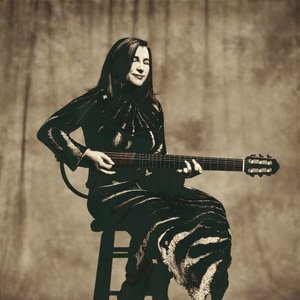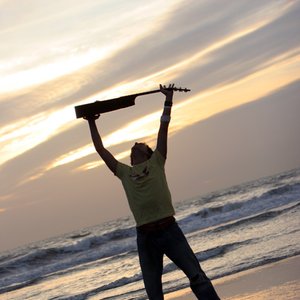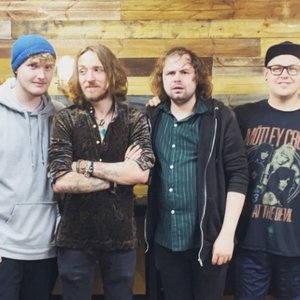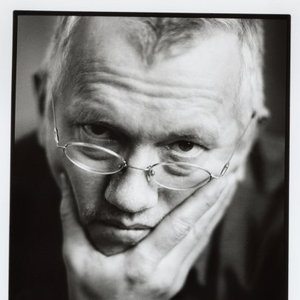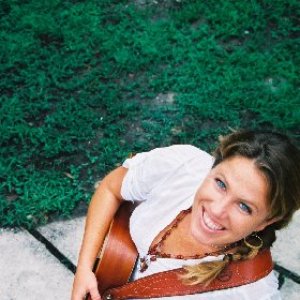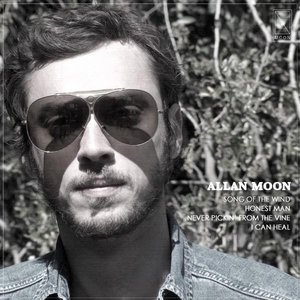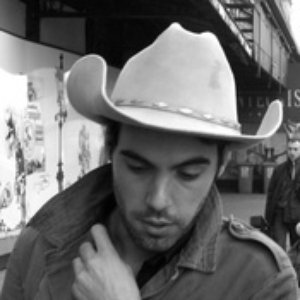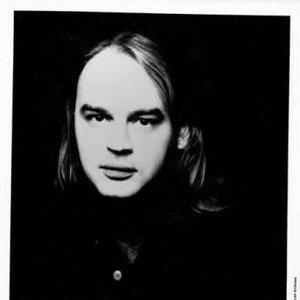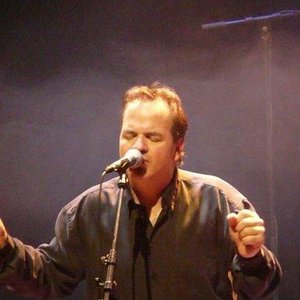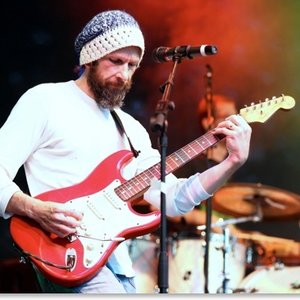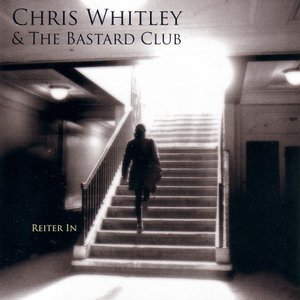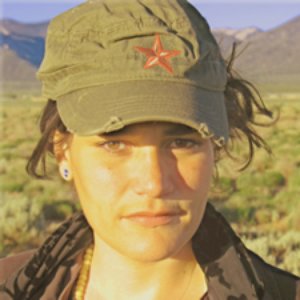Biography
-
Born
1945 (age 79)
Michael De Jong (Fontenay-le-Comte, France, 1945 - 10 March 2018) was a Dutch–American blues guitarist and singer songwriter.
In the early days when he played with the Michael De Jong Band there were influences in his music by Chuck Berry, Buddy Holly, Eddie Cochran, Jimmy Reed and other 1950s blues and rockabilly. Later he played (mostly solo) sober intimate songs using just a guitar and his hoarse worn out voice. He wrote about his struggle with life, about women ("Gods masterpiece"), love and the decay of society.
De Jongs father (Gerben De Jong ("Gep"), 1919 – 1994) was a Dutchman who fled the Netherlands during World War II. In France his father married a French Basque woman, that time De Jong was born. After the War, they lived in The Netherlands until the family emigrated to the United States in 1950. (Which is why Michael has no less than three different passports.) At the age of five De Jong grew up in Grand Rapids, Michigan, where he ended up as the foreign outsider. When he was six years old he joined the church choir, he never stopped singing again. His first performance was at this age: he sang "Ave Maria" in the boys church choir. In contradiction of this, he spent his ninth birthday in a youth institution for setting his school on fire. The reason for this: in front of his schoolmates he was blamed to be a bad Catholist, because his parents didn't donate enough money to the church. De Jong was caught early, otherwise he would have burned down the church, the vicarage and the monastery as well, he said himself. At the age of thirteen De Jong started playing the guitar without taking any lessons. This happened after seeing a concert of Johnny Cash: "That's what I wanna do." Five years later he started his first band The Nightwalkers, which backed Bobby Bare who shortly there after became successful with The All American Boy and the classic Detroit City.
In 1967 he moved to Detroit. There he became a regular guest at the John Sinclair's Ann Arbor Blues Festival. Between 1970 and 1974 he traveled through the US. Finally he ended up in New Orleans. There he played in rather obscure clubs of Bourbon Street almost 7 nights a week for 13 months in a row. Often he was sharing the stage with Professor Longhair and the Neville Brothers. He moved to California in 1975 where he stayed for 10 years in San Francisco. During that time he played with or supported Jerry Garcia, Paul Butterfield, Albert Collins, John Lee Hooker, Maria Muldaur, Country Joe, Charlie Musselwhite, Albert King… and other musical legends. De Jong soon earned the respect of Philip Elwood, the San Francisco Examiners top music critic. Around that time De Jong joined blueslegend Jimmy Reed's band as his guitarist. One day Reed told him: "It ain't how you sing the song boy, it's how you live your life… and if you ain't lived the life, how can you sing the song." After hearing these words De Jong started writing his own songs. It was De Jong who discovered Reed's body after his death in Oakland.
In 1981, De Jong recorded his first album "All Night Long". It was produced by Nick Gravenites (Electric Flag, Janis Joplin) and featured Steve Miller Band members Norton Buffalo & Greg Douglas.
:Review by Mike Joseph, S.F. Chronicle, exact date unknown, 1983:
"Sounds like Bob Seger fronting Dire Straits, but harder. The range here is from country-western ballads to balls-out rockers, and DeJong and his bandmates show that four-set nights of load rock 'n roll are more than familiar to them."
Three years later he was fed up with the American culture and, making an oath to himself never to come back, he returned to Europe. After travelling through Paris, London and Bremen he settled in Copenhagen, Denmark, from 1985 to 1988 when he "left" Denmark. In fact, after ending up in jail once again, he got kicked out of the country with a prohibition on accessing the country for the next 10 years. Late eighties, early nineties De Jong stayed in Amsterdam, the Netherlands. But he'd enjoyed too much sex, drugs and blues these days and before (quoting De Jong: "I've committed all sins, except of murder."), now he had to pay the price. In 1992 he got the verdict of being HIV-positive. That time he stopped drinking and doing drugs, only by the help of his muse that time. One year later, in 1993, he moved to Dordrecht.
His first European CD was ""Fugitive Love Songs for Tombstone Records. His first album for Munich Records was 1996's 'Who's Fooling Who'. He recorded seven albums for Munich Records, often in even one take. About the time he recorded "Immaculate Deception" (2000) doctors discovered a tumor on his vocal cords. The tumor was removed by lasering and afterwards he had to start learning to sing again.
Michael de Jong died 10 March 2018 in Dordrecht, The Netherlands.
Discography
All Night Long, Michael De Jong band (Sabine Records, for M.D.J. Productions, 1981) – Produced by Nick Gravenites
Norton Buffalo on harmonica, Greg Douglass on lead guitar, Byron Allred on piano, Doug Killmer on bass, Skip White on drums
Fugitive Love Songs (Tombstone Records, 1993) – Recorded April 22–24, 1992 at Café Max, Rotterdam, the Netherlands
Who's Foolin' Who' (Munich, 1996) – Recorded at: Stonesound Studio, Roosendaal, NL
Alive (Munich, 1997) – Recorded at Cafe de Amer, Amen,NL
Grown Man Moan (Munich, 1998) – Recorded, Mixed & Mastered at Farmsound Studio, Heelsum, NL
The Waiting Game (Munich, 1999) – Recorded, Mixed & Mastered at Farmsound Studio, Heelsum, NL
Immaculate Deception (Munich, 2000) – Recorded at Sonic Arts Studio, Austin, Texas
Riley Osborne, keyboards (played for Willie Nelson) – Kevin Russell, mandoline (known from The Gourds) – Glen Fukunaga, bass (played for Bob Dylan) – Jon Dee Graham, lap-steel-guitar (known from True Believers) – John Hagen, cello (known from Lyle Lovett's Large Band)
Park Bench Serenade (Munich, 2001) – Recorded and Mixed at Arlyn Studio, Austin, Texas
Last Chance Romance (Munich, 2002) – Recorded at Fortress Studio, London, England
23, Rue Boyer (Corazong, 2004) – Recorded at Carre, Amsterdam(NL): Muziekcentrum Vredenburg, Utrecht(NL): Patronaat, Haarlem(NL): La Maroguinerie, Paris(FR)
Imaginary Conversation (Corazong, 2004) – Recorded at Studio van Schuppen, Veenendaal,NL
Echo From The Mountain (Mink Records, 2005) – Recorded at Nighttown, Rotterdam(NL): De Kleine Komedie, Amsterdam(NL): Odeon, Zwolle(NL): Oosterpoort, Groningen(NL): 013, Tilburg(NL)
The Great Illusion (Music & Words, 2006) – Recorded at: Eurosound Studio, Herveld, NL: All Ears Studio, Amsterdam, NL: Farmsound Studio, Heelsum, NL
For Madmen Only (Music & Words, 2009) – Recorded & Mastered at Farmsound Studio, Heelsum, NL
Life in D-Minor (MW Records. 2012) – Mixed & Mastered at Farmsound Studio, Heelsum,NL
Lone Wolf Howling (Live Tour 2012) (Dutch Uncle Music) – Recorded at The Netherlands?
Michael De Jong Band Live – 30 Year Anniversary (Dutch Uncle Music, 2013) – Recorded Live At The Stone, San Francisco, CA, November 19, 1983 / Mastered at Farmsound studio, Heelsum, NL
Something For The Pain (Dutch Uncle Music, 2014) – Mixed & Mastered at Farmsound Studio, Heelsum,NL
Requiem For The Lonely (Dutch Uncle Music, 2016) - Recorded at Farmsound studio, Heelsum, NL / Rubber Room Studio, Frederick, MA, USA / Life Song Studio, Santa Cruz, CA, USA / Route 44 Studio, Sebastopol, CA, USA
Quotes
De Jong asked about his guitar playing:
"I never had a lesson in my life. I play what I feel, what I've gone through, what I've seen. I've tried quitting, but I can't."
He returned to the Netherlands "to learn how to pronounce my last name".
Asked why he sings the blues:
"… they've killed King, Malcolm X and the Kennedy's . All my heroes are dead. So I sing the blues."
Does he hungers for commercial success?
""Maybe I'll never be a commercial success. But I'll touch a lot of people."
Trivia
The album Immaculate Deception was recorded in three days and the mixing took only two days.
"Waiting for the Rainbow", from the album "Park Bench Serenade", was written in about an hour in the Daniël Den Hoop hospital during the waiting on the removal of the tumor on his vocal cords.
For his solo live album "23 Rue Boyer", distributed by Corazong Records with its headquarters in Spain, De Jong got almost no royalties due to a struggle with the Spanish organisation for author rights.
A deal with record label Universe was cancelled by De Jong when he was told his name on the cd cover would be written as "Michael Young". Universe said this way the music would sell better. For a man who was trying to honor his father, Gerrit/Gerben De Jong, this request was one step too far.
As a gesture for the fans De Jong puts his cd's that are no longer for sale now online for free on his website. Other cd's can be ordered at the lowest price. "I saw one of my CD's for sale on the internet for the price of almost €80. I can't accept that. I think my fans have the right to buy my music for normal prices."
Refere http://michaeldejong.com/
" Michael's musical landscape is vast and haunted, filled with living breathing demons and a darkness so dark that there is only one way out……and that is to sing as if your life counted on it. Michael sings as if his life is counting on it. Rarely will you find a man who will give you so much in his music…..Michael de Jong gives you all he's got. Consider it a gift, because it is. He is a musical treasure." Mary Gauthier - Artist / Performer
Michael de Jong is the best that came out of Dutch R & R.Jip Golsteijn - De Telegraaf
He has an unforgettable voice and deliver… he's a strong composer and outstanding singer.Phillip Elwood - San Francisco Examiner
In the entire Dutch Rock history there's nothing that comes close to his stunning life and work. Herman van der Horst - OOR
De Jong has build up such a musical credibility. More then probably nobody else with a Dutch passport gets even close.Sander Donkers - Vrij Nederland
Michael de Jong's personal and musical life stories are the stuff of legend and nightmare. He was lucky to survive OD's, madness and violence.. the paranoia.. alcohol and drugs.. the horror while hellfire was almost licking his feet. He was not so lucky as to escape the scars and scathing that come from living such a life. It's understandable that Michael's in a hurry. He's recorded and released six albums in the last six years and all of his songs are autobiographical or about things that he witnessed. From eating out of garbage cans and shooting heroin behind a San Francisco bus station to suicide, jail, asylum, religion, politics. Words "filled with breathing demons with a darkness so dark that there's only one way out.. and that is to sing.."
Michael de Jong was born in France in 1945, his father was a Dutchman who fled during World War II where he married a French Basque woman. After the War, they lived in Holland until the family immigrated to America in 1950. As musical careers develop, his is truly stunning. Michael started playing the guitar at the age of 13. Five years later he started his first band The Nightwalkers, which backed Bobby Bare who shortly there after became successful with All American Boy, Brooklyn Bridge and the classic Detroit City.
Michael's name first made the newspapers when, at the age of 8, he burned down his school. Although this may sound a little extreme Michael assures us he had the best of reasons. It's too long a story to go into here so maybe you should ask him about it yourself if you ever get the chance. Michael started playing the guitar at the age of 13. Five years later he started his band The Nightwalkers, which backed Bobby Bare who shortly after became successful with All American Boy, Brooklyn Bridge and the classic Detroit City.
In 1965, Michael moved to Detroit where he became a regular guest at John Sinclair's Ann Arbor Blues Festival. Between 1970 & 1974 he travelled extensively throughout the States. He ended up in New Orleans where he played the strip-clubs of Bourbon Street 7 nights a week for 13 months in a row, often sharing the stage with Professor Longhair. Michael moved to California in 1974. During the 10 years that he lived in San Francisco, he played with or supported Jerry Garcia, Paul Butterfield, Albert Collins, John Lee Hooker, Maria Muldaur, Country Joe, Charlie Musselwhite, Albert King.. the list goes on and on.
Michael soon earned the respect of the San Francisco Examiners top music critic Phillip Elwood (see quotes). Michael then went on to join blueslegend Jimmy Reed's as his guitarist in Jimmy's band. During this time Michael started writing his own songs after Jimmy told him "It ain't how you sing the song boy, it's how you live your life.. and if you ain't lived the life, how can you sing the song." It was Michael who was to discover Jimmy's body after his death in Oakland on the afternoon of August 29, 1976.
In 1981, Michael recorded his first album All Night Long, produced by legendary Nick Gravenitis and featuring Steve Miller Band members Norton Buffalo & Greg Douglas. Three years later he returned to Europe and after "spending time" in Germany, France, Denmark and Sweden, he revisited his Dutch roots, settling in Holland where he still lives. He's a superb live performer and in recent years supported Van Morrison, Clannad, Jethro Tull a.o. Michael's shows are full of energy and emotion and should not to be missed. Heartfelt and without pretensions, no matter whether live on stage or on CD, Michael de Jong's music undoubtedly fits in with the Munich Records motto: "Real People, Real Instruments & Real Music".
His first album for Munich Records was 1996's 'Who's Fooling Who', a studio recording of 14 of his original songs followed up with the albums '"Alive", "Grown Man Moan", "The Waiting Game" and "Immaculate Deception". All albums received rave reviews.
Biography from de official site of Michael de Jong
Artist descriptions on Last.fm are editable by everyone. Feel free to contribute!
All user-contributed text on this page is available under the Creative Commons Attribution-ShareAlike License; additional terms may apply.

